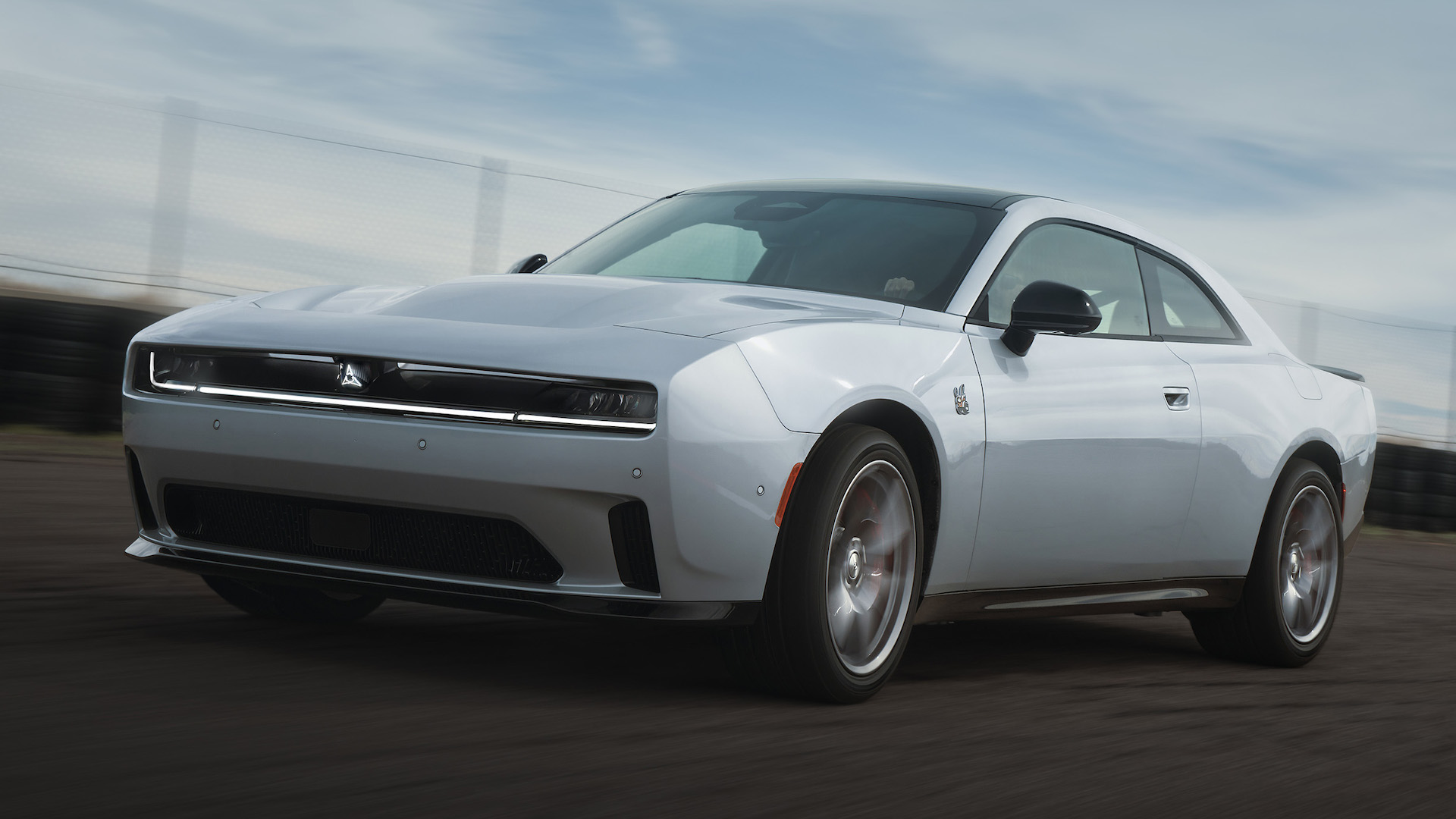

The 2024 Dodge Charger Daytona is here, with almost as much power as the last-generation Hellcat. You’d imagine that gives Dodge’s new electric muscle car similar straight-line performance, but the new Scat Pack runs out of steam sooner—at just 134 mph. That makes it barely faster than the last-gen’s base models, and slower than even the new R/T. There’s a reason Dodge did this though, and there’s still a way it could unlock higher speeds for future Charger EVs.
The new Scat Pack generates up to 670 horsepower and 627 pound-feet of torque, which it lays down through all four wheels. This sends the it from zero to 60 mph in 3.3 seconds, and down the standing quarter mile in 11.5, each occurring about a second sooner than a V8-powered 2023 Scat Pack would go. But still, you’re probably eyeing that 134-mph top speed and frowning—even the R/T does 137! They even have the same gear ratios for goodness’ sake. What gives?

We didn’t get an explanation when we asked Dodge, but we have a pretty good idea based on other performance EVs so far. Almost all EVs have relatively low top speeds for their power outputs, and there are multiple reasons why. Chiefly, it has to do with EVs’ transmissions, which are almost always single-speed reduction gears. These offer sharp real-world acceleration and response as well as simple construction, reducing cost.
But like internal combustion engines, electric motors can only rev so high. They’re less efficient at higher rpm, which is why EVs get worse range on the highway than in the city. Meanwhile, vehicles with internal combustion engines and multi-speed transmissions will shift into a higher gear, which is why highways are where they’re most efficient. Some EVs, like the Porsche Taycan, also do this with two-speed gearboxes which also increase top speed.
Then there’s heat, which all vehicles generate in excess when driven at full throttle for prolonged periods. It can be a problem even in purpose-built performance cars with enhanced cooling, like the last-gen Chevy Corvette Z06. In EVs, that heat builds up in the battery, which can catch fire or explode if it overheats. Naturally, EVs have cooling systems to prevent this and are programmed not to exceed certain temperatures by limiting power output or charging rates. Ever left your phone out in the sun and had it tell you it’s too hot to be used? Same idea—they’re both in a sort of limp mode to save themselves.

When it comes to the Charger specifically though, it’s a head-scratcher as to why the Scat Pack has a lower top speed than the lesser R/T. They seem to have all the same drivetrain hardware, so maybe the higher power output puts more strain on the components. Admittedly, this doesn’t make much sense if you can reach the same speeds with less power, but it’s clear what Dodge’s intent was. It tuned the Scat Pack for the quickest possible quarter mile, not to hit untellable speeds racing from a roll on the highway.
Those may instead be achieved by the SRT Banshee or whatever subsequent top trim comes along, which a leak informed us will make more than 880 hp. It may be able to put it to better use, too, as Stellantis has recently filed patents for two-speed EV reduction gear ratios. Most see it as an augmentation to off-road performance like a transfer case, but the same tech could also bring out the best in the new Charger.
That is, unless you consider the 3.0-liter inline-six the one to wait for. With the potential for massive power on the table, it’s hard not to.
Got a tip or question for the author? You can reach them here: james@thedrive.com